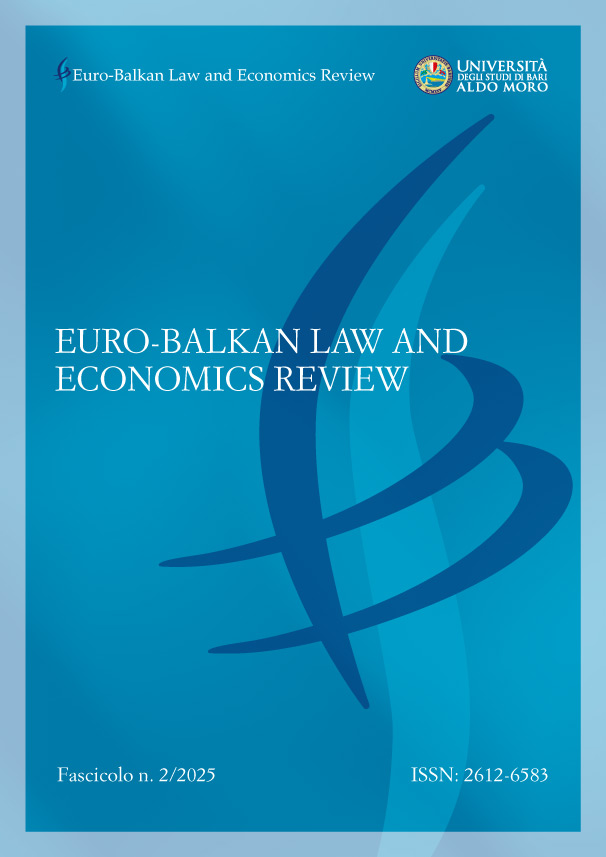Note sulle attività connesse e strumentali esercitate dalle banche tra diritto interno e dell’Unione Europea. Dai telefoni fissi agli smartphone
DOI:
https://doi.org/10.15162/2612-6583/2279Keywords:
Ancillary and Instrumental activities, Banking activity, Digital platforms, Payment servicesAbstract
This article examines the scope of banking operations under Article 10(3) of the Italian Consolidated Law on Banking (TUB), which authorizes banks to engage in ancillary and instrumental activities. These categories are interpreted as relational and non-mutually exclusive, encompassing not only core banking functions but also other authorized financial services, while excluding indirect or second-degree relationships. It is maintained that such activities must possess entrepreneurial autonomy and be directed toward the market, rather than consisting of mere internal acts or transactions. Regarding instrumental activities, a comparison is drawn between a restrictive approach - equating them with internal auxiliary functions - and a broader, preferable interpretation that allows their provision to third parties within non-prevalence limits, thereby enhancing resource efficiency in practice. With respect to ancillary activities, the analysis focuses on the criterion of functional linkage with the bank’s organizational structure, including both physical and digital infrastructures. It is argued that such activities must be assessed for their compatibility with sound and prudent management, ensuring they do not alter the bank’s risk profile or compromise the adequacy of internal controls. It is further contended that the limitations applicable to instrumental companies - i.e., entities in which banks may hold participations - should not be extended to ancillary activities. This supports a notion of functional linkage oriented toward the promotion of the bank’s core business.
At the European level, attention is drawn to the silence of the Capital Requirements Regulation (CRR) regarding the “commercial” activities that banks may undertake. Although the European Banking Authority (EBA) Opinions (2014; 2020) call for clarification, they merely refer to the concept of instrumental undertakings, which appears insufficient to support the evolution of banks into digital platforms. Accordingly, it is proposed that EU legislators explicitly authorize banks to operate proprietary platforms for the distribution of non-banking goods and services, leveraging the provision of payment services (with reference to foreign experiences). Such a regulatory development would enable banks to respond to the changing dynamics of digital demand, starting from the perspective of customer needs e thus moving beyond the rigid centrality of traditional banking activities and reinforcing their direct relationship with customers.






